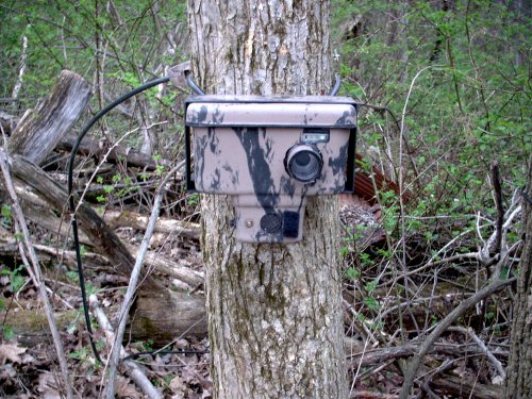High School Student uses Trail Cameras for Science Project - Find out what He Learned about Baiting
Ever wonder if baiting deer would change YOUR herd’s behavior? A Washington high school student did, and because of it, he’s earned a trip to the National Science Symposium in San Diego at the end of this month.
Taken from Spokesman Review – By Jody Lawrence Turner
Riverside High School senior Erik Kemp wondered if baiting deer would change the animal’s behavior – a concern he’d heard from the Washington Department of Fish and Wildlife.
But no one had the answer, so the 18-year-old turned the question into a science project. Kemp set up four trail cameras in four different areas of his family’s multi-acre property and logged the whitetail deer’s behavior over three months.
“Two weeks of baiting them had no lasting effect on their behavior,” Kemp said of his research.
His curiosity, and the science project, has earned him a trip to the National Science Symposium in San Diego at the end of the month. The teen will also present his findings to the Washington Department of Fish and Wildlife’s eastern division on Tuesday.
The department has never collected data on baiting deer, officials said.
Baiting deer is legal in Washington, but it is illegal in Idaho and many other states, said Kevin Robinette, regional wildlife program manager. “Hunters, mainly archers, find baiting useful because they can study the animal to know where to shoot the arrow.”
Wildlife officials worry that baiting deer will interfere with migration patterns. Other concerns include “habitat impacts from congregating deer; increase in disease transmission … influencing hunter success rates and overall harvest structure,” Robinette said.
When the issue has been put out to public opinion, the response about banning the practice has been split, wildlife officials say.
“If hunting success rates are very, very high because people are baiting, then we may shorten the season,” Robinette said. “But we don’t see that yet.”

Washington State high school senior, Erik Kemp, used trail cameras in a science experiment that earned him a trip to the National Science Symposium in San Diego, California.
The baiting debate sparked Kemp’s curiosity.
Kemp had several hypotheses he wanted to test: that adding corn or crab apples would increase deer visits; that after the food was gone, the number of deer visits would uniformly taper; that the addition of bait would increase the number of photos taken by his cameras because deer revisited the area; that the addition of bait would increase the number of deer who visited the sites.
Because his experiment was on private property where no hunting was allowed last year, he could not test for hunter success rates. He also could not test for disease.
To start, he set up the cameras but no food and received only a few visitors. When he put out corn, the visits spiked, then tapered off. He did this twice.
“Sometimes I would get 80 pictures per day,” Kemp said. “That was at the prime of the corn, and included all four areas.”
When the food was gone, the amount of game that visited the areas went back to pre-corn levels. He then put out crab apples and saw another spike of visits, but not as many as with the corn. Again, once the food supply was depleted the numbers dropped back down.
Through these tests, Kemp was able to confirm two of his theories. But he wasn’t able to learn if deer revisited the area or if the bait drew new deer, “due to inability to distinguish different does and fawns.”
The trail cams were left up for several weeks after the food was removed, and there was no change from before the experiment began.
During the test, Kemp also learned a few more unexpected lessons.
“The deer liked the corn better,” Kemp said. And there was more than one peak eating time of day.
“I got pictures of cougar, bear, turkeys, moose and coyotes,” he said. “The bear and the turkeys ate the food, but not as much as the deer.”
The Hunting Network staff wishes the best of luck to you Erik in San Diego. We will be anxiously waiting to report how well you did, as this is about the only type of science we enjoy. Congrats again on the trip and good luck!



Leave Comments